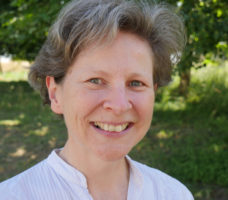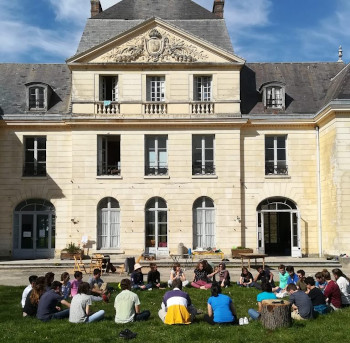"Understanding & Acting" conference
Thought and practice of action

Conference by Cécile Renouard. Cécile Renouard is President of the Campus de la Transition, an institution created at the end of 2017 to train students and professionals in economic models and lifestyles consistent with the ecological and social transition in the territories. She is Professor of Philosophy at the Centre Sèvres (Jesuit Faculty of Paris) and teaches at the Ecole des Mines de Paris, ESSEC and Sciences Po. She is the author of 20 Proposals for reforming capitalism (ed. with Gaël Giraud, Flammarion, 2009, 2nd edition 2012), Ethics and enterprise, (Ed. de l'Atelier, 2013, pocket 2015), L'entreprise comme commun (with Swann Bommier, Editions Charles-Leopold Mayer, 2018). She coordinated with Rémi Beau, Christophe Goupil and Christian Koenig the Manuel de la Grande Transition (LLL, publication 14 Oct 2020).

Abstract: Understanding in order to act, training in order to transform, such is the objective of the Handbook of the Great Transition, a collective work resulting from a request from the Ministry of Higher Education to the Transition Campus a year ago, in order to contribute to the structuring integration of ecological and social issues in higher education. The approach mobilized more than 70 teacher-researchers from all disciplines, as well as some professionals and students of the Movement for an Ecological Awakening. Cécile Renouard will present the inter- and transdisciplinary, holistic and citizen-based approach that underlies this work and will share the experience of the Campus de la Transition, an eco-place for training, research and experimentation, which she co-founded and where she has lived for the past two years. In particular, she will analyze the relationship to action and transformation that this type of project represents. This initiative, anchored in a territory and in a network, seeks to link different scales of action and to nourish dialogue between reformist perspectives, in rupture and at the interstices with a view to professional, social and cultural transformations. This invites reflection on the possibility - or not - of holding together two reformist and ruptured postures, and to question the place of activism in research and academic engagement.
See also
Brouillon créé le 29 March 2023 à 15h16
10 January 2023
(Français) La notion de sobriété renvoie à une distinction implicite entre désirs et besoins, la distinction entre...
More infoWhy is sobriety necessary, and the obstacles to its implementation?
26 November 2019
(Français) La notion de sobriété renvoie à une distinction implicite entre désirs et besoins, la distinction entre...
More info



